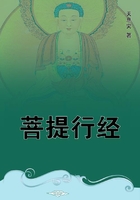The schools of the South, like the churches and political institutions, were thrown into the melting pot of reconstruction.The spirit in which the work was begun may be judged from the tone of the addresses made at a meeting of the National Teachers Association in 1865.The president, S.S.Greene, declared that "the old slave States are to be the new missionary ground for the national school teacher." Francis Wayland, the former president of Brown University, remarked that "it has been a war of education and patriotism against ignorance and barbarism." President Hill of Harvard spoke of the "new work of spreading knowledge and intellectual culture over the regions that sat in darkness." Other speakers asserted that the leading Southern whites were as much opposed to free schools as to free governments and "we must treat them as western farmers do the stumps in their clearings, work around them and let them rot out"; that the majority of the whites were more ignorant than the slaves; and that the Negro must be educated and strengthened against "the wiles, the guile, and hate of his baffled masters and their minions." The New England Freedmen's Aid Society considered it necessary to educate the Negro "as a counteracting influence against the evil councils and designs of the white freemen."The tasks that confronted the Southern States in 1865-67 were two: first, to restore the shattered school systems of the whites; and second, to arrange for the education of the Negroes.Education of the Negro slave had been looked upon as dangerous and had been generally forbidden.A small number of Negroes could read and write, but there were at the close of the war no schools for the children.Before 1861, each state had developed at least the outlines of a school system.Though hindered in development by the sparseness of the population and by the prevalence in some districts of the Virginia doctrine that free schools were only for the poor, public schools were nevertheless in existence in 1861.Academies and colleges, however, were thronged with students.When the war ended, the public schools were disorganized, and the private academies and the colleges were closed.Teachers and students had been dispersed; buildings had been burned or used for hospitals and laboratories;and public libraries had virtually disappeared.
The colleges made efforts to open in the fall of 1865.Only one student presented himself at the University of Alabama for matriculation; but before June 1866, the stronger colleges were again in operation.The public or semi-public schools for the whites also opened in the fall.In the cities where Federal military authorities had brought about the employment of Northern teachers, there was some friction.In New Orleans, for example, the teachers required the children to sing Northern songs and patriotic airs.When the Confederates were restored to power, these teachers were dismissed.
The movement toward Negro education was general throughout the South.Among the blacks themselves there was an intense desire to learn.They wished to read the Bible, to be preachers, to be as the old master and not have to work.
Day and night and Sunday they crowded the schools.According to an observer,*"not only are individuals seen at study, and under the most untoward circumstances, but in very many places I have found what I will call 'native schools,' often rude and very imperfect, but there they are, a group, perhaps, of all ages, trying to learn.Some young man, some woman, or old preacher, in cellar, or shed, or corner of a Negro meeting-house, with the alphabet in hand, or a town spelling-book, is their teacher.All are full of enthusiasm with the new knowledge the book is imparting to them."* J.W.Alvord, Superintendent of Schools for the Freedmen's Bureau, 1866.
Not only did the Negroes want schooling, but both the North and the South proposed to give it to them.Neither side was actuated entirely by altruistic motives.A Hampton Institute teacher in later days remarked: "When the combat was over and the Yankee school-ma'am followed in the train of the northern armies, the business of educating the Negroes was a continuation of hostilities against the vanquished and was so regarded to a considerable extent on both sides."The Southern churches, through their bishops and clergy, the newspapers, and prominent individuals such as J.L.M.Curry, John B.Gordon, J.L.Orr, Governors Brown, Moore, and Patton, came out in favor of Negro education.Of this movement General Swayne said: "Quite early....the several religious denominations took strong ground in favor of the education of the freedmen.
The principal argument was an appeal to sectional and sectarian prejudice, lest, the work being inevitable, the influence which must come from it be realized by others; but it is believed that this was but the shield and weapon which men of unselfish principle found necessary at first." The newspapers took the attitude that the Southern whites should teach the Negroes because it was their duty, because it was good policy, and because if they did not do so some one else would.The "Advertiser" of Montgomery stated that education was a danger in slavery times but that under freedom ignorance became a danger.
For a time there were numerous schools taught by crippled Confederates and by Southern women.
But the education of the Negro, like his religious training, was taken from the control of the Southern white and was placed under the direction of the Northern teachers and missionaries who swarmed into the country under the fostering care of the Freedmen's Bureau, the Northern churches, and the various Freedmen's Aid Societies.In three years the Bureau spent six million dollars on Negro schools and everywhere it exercised supervision over them.















